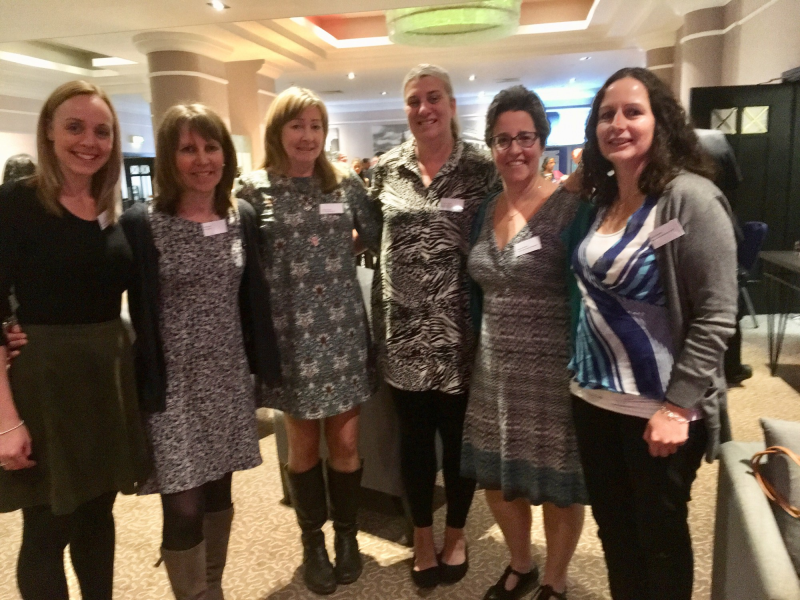Jane Frances
19 November 2019
Jane Frances
Jane Frances is a psychotherapist and was for many years Schools Specialist and Policy Advisor in Education at Changing Faces, UK. She is an expert in the psychology of visible difference.
She tells us of how findings from psychological research can help parents and teachers of children with Neurofibromatosis to better support them.
“I have worked with a lot of children with many conditions including NF, and I’ve found that the responses by other people to visible difference is pretty standard across conditions. The advice I give is based on research. ‘Common sense’, however well-intentioned, can lead to counterproductive interventions.
For example, if a child is staring at a child with a visible difference, the ‘natural’ reaction of the teacher is to say, ‘you mustn’t stare’. The result is that children learn to turn away, and the child with the difference feels even more isolated.
A better response is for the teacher to tell the staring child, ‘if you find yourself staring, smile and say ‘Hello, my name is Jane. What’s your name?’’
It is even more important that parents or the teacher coach the child who has NF to handle other children’s curiosity. The best strategy is for the child with NF to have something to say, like: ‘Don’t mind my lumps and bumps. I’ve got NF. Have you got something interesting about you?’ It is always good to round off with a question and engage – curiosity is the beginning of a relationship.
If the child is shy and nervous, the teacher might need to say, ‘Oh you’ve noticed Timothy’s unusual face. Well that’s the way Timothy’s face is, and did you know Timothy has a pet cat?’
We know from countless studies that it is harder for a child who looks unusual to make and keep friends. This is caused not by an aversion to the unusual face, but by an aversion to the stigma. The key, therefore, is to reduce or eliminate the stigma. The conversational strategies above will help. A curious stare is a door to a conversation and possible relationship.
Teachers’ expectations are also key: they need to hold in their heart really positive hopes for this child’s future. Many studies confirm the ‘Pygmalion Effect’: that lower expectations lead to lower results. Teachers aren’t doing children a favour by going easy on them. The child needs tough, high expectations.
These are just a few tips. You can get more information and resources for tackling issues of face equality and the impact of appearance at changingfaces.org.uk.”
– Jane Frances"The best strategy is for the child with NF to have something to say, like: ‘Don’t mind my lumps and bumps. I’ve got NF. Have you got something interesting about you? "
Filter News

Christmas Card Competition 2019
Check out this year's Christmas Card Competition and how to enter
Read More
Sunflower lanyards to support patients and visitors with hidden disabilities
Read about the new lanyards being given out at Heathrow, Sainsbury's and Gatwick to help support those with disabilities
Read More
NTUK attends Small Charity Week
Nerve Tumours UK attended Small Charity Week, find out more about the week and why we attended here:
Read More
Nerve Tumours UK Specialist Neurofibromatosis Nurses attend the National NF2 CQuinn Meeting in Manchester.
Have a read about what was talked about at this year's National NF2 CQuinn Meeting in Manchester
Read More
Nerve Tumours UK adds BrowseAloud to their website
Have a read about the new software we have uploaded to our website in order to make it more accessible to everyone.
Read More
11 year old inspired to run 31 miles within 8 hours for his brother who has NF
Have a read about young Will's remarkable achievement that has been inspired by Adam Jacob's story on our website
Read More
Simon’s Story
Have a read of Simon's Story and his desire to help NF2 Bio Solutions find a cure for NF2:
Read More
Steve Brine MP helps spread awareness for Nerve Tumours UK
The Burbridge Family recently met up with MP Steve Brine to help spread awareness for NF. Find out more here:
Read More
Meet Tom
Tom Hazell is 37, works in IT, lives in Essex with his long-term partner, he has NF2/Schwannomatosis Find out more here:
Read More

